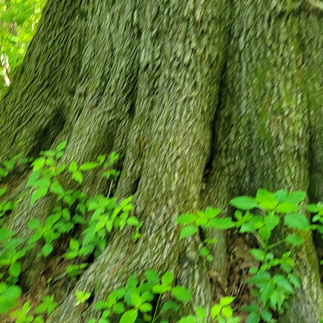First Time Forager, Here's What You Need to Know
- KhadiYah

- Nov 22, 2022
- 4 min read
Wild foods and those that are native to our area, are often more nutritious for us. Free food is just fingertips away for many of us, but we have yet to explore them. Foraging can be such an exciting adventure, when your prepared for it.
Here's what you need to know BEFORE you go foraging!

Foraging in the wild is very different from foraging in your backyard or harvesting from your garden.
Depending on the time of year you go foraging and your particular growing zone, the local forest or park is usually green from end to end, filled with densely lush plants, so much so that it covers the ground. If you are fortunate to have a trail to follow, it will likely be narrow, just enough to fit two feet close together. You'll also find that one plant will tend to dominate an area, and it may be harder to spot the plants that you are familiar with.

It may be particularly difficult to distinguish one plant from another when they are vining on one another, growing on top of one another, shading one another out.
Can you tell where one ends, and another begins?
In the winter it may be hard to identify plants based on the withered-up stems of former glorious plants. Berries may be picked over; flowers and leaves may have fallen off. These plants may be older with woodier stems that are hard to pry out of the ground. It is especially important to learn what your favorite plants look at doting the various stages of growth.
Picture: Chickweed creeping underneath Paw Paw trees.
You need to watch your surroundings

The Forest is filled with trees that are older than you. 🌳 Just as we go through life cycles, so too does nature. On our trails there are many fallen limbs that are decaying with mushrooms and poison ivy. You need to be careful not to trip on them and don't stand directly next to any tree that looks like it's sick or diseased. I like to wear long clothes and pulled back hair so slumping branches don't catch on to me. Walk slowly so you don't walk into spider 🕸 webs...
Not only that, but trails are also filled with roots stretching past them (see above). There may be dips and hills all along the route. Depending on where you live, the trails may be on soft clay, or mud which can be a tripping hazard. Taking a walking stick with you can help you keep your balance.
Pay attention to the sounds you may hear around you and watch your step. Animals such as birds can alert you to nearby danger. Wild birds are so much louder and talkative than those in our neighborhoods; listen attentively for changes in sound.
I find that the woods are so quiet you could hear a pin drop. This means any sound, no matter how small, is amplified. I actually tend to make more noise as I walk through to alert other animals that I'm getting closer to them. I like to think that this allows them to get away from me, I truly believe that they want to be left alone like we do. They don't go out of their way to approach us, and they usually only attack when frightened, so try not to do that!
You need to have protection
As a woman, I just don't go foraging by myself, I just think that it would be very dangerous to do but also, I do carry some sort of protection. It does vary by state but what I like to bring is a dual-purpose flashlight, stun gun. I also bring some kind of utility knife, they're very compact. I also think it's a really good idea to have some pepper spray that you can use for bears, depending on where you live bears may be an issue.
Whenever I'm walking, I try to walk a bit noisy because I want to let the animals know that I'm coming, and it gives them a chance to kind of get out of the way or go the opposite way to avoid me. I personally think that they're kind of like people, they like to they like to mind their own business and stay to themselves. Look out for little things like snakes.

I don't recommend foraging near traffic, roadsides, or any place that has stagnant water. That would not be a good place to harvest from. These herbs really hold on to the minerals and nutrients from the soil. Likewise, if the environment that is growing harbors toxic chemicals, plants can bind to these toxins. You also want to be careful that you don't harvest plants where people have their dogs walking by and may pee on them; be mindful of all these things.
I shared a lot of information that can intimidating for those who are beginners however I definitely recommend foraging as herbalists. You can learn so much more about plants, the environment and nature by doing so. These are the things you want to look out for first and be prepared so that you can have the best experience possible.





















Comments